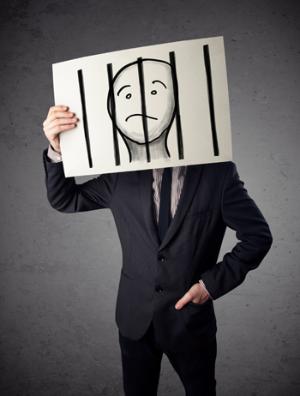 Shemtov Michtavi is no stranger to the law. After being sentenced to federal prison in Pennsylvania in 2004 for his involvement in a worldwide Ecstasy ring, the so-called “lieutenant” of Israeli drug kingpin Ze’ev Rosenstein has sued the United States at least twice for better in-prison treatment—and that was after he’d already gone after the New York Daily News for defamation when he was arrested.
Shemtov Michtavi is no stranger to the law. After being sentenced to federal prison in Pennsylvania in 2004 for his involvement in a worldwide Ecstasy ring, the so-called “lieutenant” of Israeli drug kingpin Ze’ev Rosenstein has sued the United States at least twice for better in-prison treatment—and that was after he’d already gone after the New York Daily News for defamation when he was arrested.
Recently Michtavi was transferred back to Israel to serve out the rest of his sentence—but not before he filed another lawsuit over the restrictions he lived under while incarcerated at central Pennsyvania’s FCI Allenwood facility. And now a Pennsylvania federal judge has ruled that suit may proceed.
The issue at hand this time: ejaculation.
According to court documents, following a prostate surgery mishap, Michtavi began suffering from a condition known as retrograde ejaculation. According to the Mayo Clinic, it’s a somewhat rare sexual disorder in which, upon ejaculation, the semen actually enters the bladder instead of “emerging through the penis during orgasm.”
The condition can cause infertility if left untreated, and the doctor who performed the surgery prescribed Michtavi medication that would enable him to function normally. That should probably be the whole story—except that the federal prison system has a tricky rule: No ejaculating.
“Many prison systems have rules against prisoners masturbating,” says Alex Friedmann, editor of Prison Legal News and himself a formerly incarcerated inmate. “To my knowledge, there’s no effort to challenge such policies. Most prisoners who want to masturbate simply do so in a manner that’s not observed by prison staff.”
Indeed, a 2001 study of a maximum security prison found that all except one male inmate admitted to masturbating. Two-thirds of female prisoners admit to it, too. Nonetheless, it’s against the law to touch yourself in prison—even in private.
And as noted by sex therapist Dr. Marty Klein in a 2012 Psychology Today piece, if there’s any disagreement as to whether an inmate has masturbated or not, the inmate loses and is punished. “Prisons say they have to regulate masturbation because of security issues, which sounds completely bogus,” he wrote. “It’s the same argument society makes when it restricts the sexual expression of any group, such as teens, soldiers, and the elderly.”
There have been several legal cases throughout the years pertaining to both ejaculation and pornography in prison. A group of prisoners in Connecticut launched a letter-writing campaign in 2012 to protest a ban on porn, and a Michigan inmate sued the U.S. for the right to masturbate in prison—which he needed because of his “chronic masturbation syndrome.”
But Michtavi’s suit isn’t exactly about the right to masturbate. He sued for the right to be dispensed the medication he’d been prescribed for a condition that becomes worse when he ejaculates. His medication was denied by the prison’s clinical director, based on the premise that sexual dysfunction isn’t a serious enough condition to warrant being served medication in prison. And, of course, the logic at play is simple enough to understand: If both masturbation and sex are prohibited in prison, then a prisoner should have no need to treat an ejaculation-based condition.
Though Michtavi is now in an Israeli prison, U.S. District Judge John E. Jones III of the Middle District of Pennsylvania has ruled that the case can move forward based on the Eighth Amendment to the U.S. Constitution, which guarantees sufficient medical care for prisoners.




